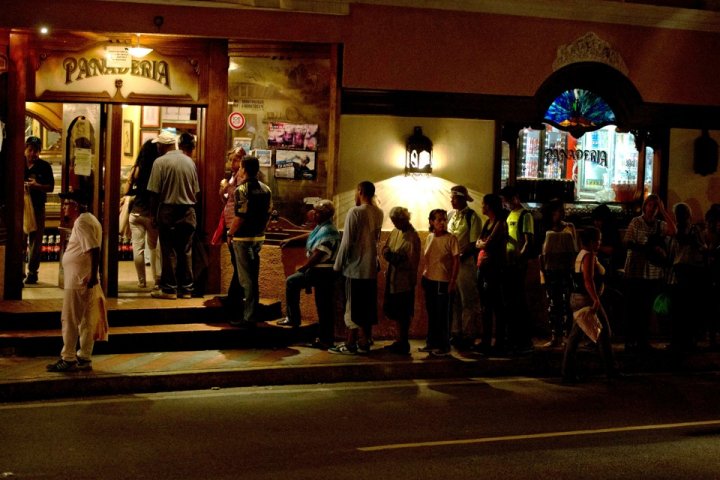This article was printed in the English journal of Yeshivat Har Etzion many moons ago…
Torah and Careers: A Practical Approach[1]
by Ben-Tzion Spitz
The question whether a Torah-observant Jew may or ought to pursue a secular career has been debated since, at latest, the time of the Mishna. In this article we will look at some sources for the debate, focusing mainly on Pirkei Avotand the Rambam, analyze the prevalent approaches today, and develop some practical tools to help guide an individual toward his own solution to the issue.
The Mishnaic Tractate Pirkei Avot (Ethics of our Fathers), is a compilation of moral advice dictating what daily behavior ought to be like for everyone.[2] It also represents the ideal that all should aim to achieve.[3] However, in carefully reviewing the various statements in the Mishna, it becomes apparent that there is a dispute about the issue of making a livelihood:
Do not say, “When I am free I will study;” perhaps you will not become free.[4]
Anyone excessively involved in business cannot become a scholar.[5]
Whoever takes upon himself the yoke of Torah, the yoke of government and the yoke of worldly responsibilities are removed from him. But whoever throws off the yoke of Torah from himself, the yoke of government and the yoke of worldly responsibilities are placed upon him.[6]
Reduce your business activities and occupy yourself with Torah. Be of humble spirit before every man. If you should neglect the Torah, there will be many other neglectors opposite you; but if you labor in Torah, He has ample reward to give you.[7]
On the other hand:
Beautiful is the study of Torah, together with an occupation, for the exertion of them both makes sin forgotten.[8]
If there is no Torah, there is no worldly occupation; if there is no worldly occupation, there is no Torah. If there is no wisdom, there is no fear of God; if there is no fear of God, there is no wisdom. If there is no knowledge, there is no understanding; if there is no understanding, there is no knowledge. If there is no flour (sustenance), there is no Torah; if there is no Torah, there is no flour (sustenance).[9]
The sages who composed these sources lived as they taught; whereas many sages earned a livelihood in non-clerical professions, others distanced themselves as much as possible from the secular world. On one hand, there are many examples of Torah giants and leaders throughout the generations that pursued careers alongside their Torah life:[10] Among Talmudic sages, Rav Huna was a water drawer,[11] Rabbi Meir a barber,[12] Rabbi Yehuda a porter,[13] Rav Yosef a miller, and Rav Sheshet a porter.[14] Among later sages, Rav Shlomo Yitzhaki (Rashi, the famous commentator on Chumash and Talmud) was a wine maker, and never accepted any position or payment for his Torah activities. Even in modern times, Rav Baruch Halevi Epstein, the author of the Torah Temima, was a banker. Rambam is perhaps the best known secular career person and we will discuss him in more detail below.
On the other hand, a paradigm of non-secular existence is represented by Rav Shimon Bar Yochai. The Talmud relates that he lived as he preached – in a cave, immersed completely in his Torah meditations, totally divorced from the world around him.[15] Thus, one group contends that men[16] should shun worldly pursuits for the exclusive study of Torah, whereas the other group seems to say that there must be a balance, a coexistence, between making a livelihood and studying Torah. This debate has continued, and one can identify the different views throughout the Talmud, Geonim, Rishonim, Acharonim and modern-day poskim.
At first glance, it appears that this dispute involves clearly defined and inflexible positions, i.e., a halakhic dispute. However, it may be more accurate to say that this debate is about philosophical preference and not about normative practice, i.e., each side emphasizes one opinion from among several, but does not decide between them.[17]
As opposed to other areas of halakha where unequivocal decisions are rendered, no authoritative decision has ever been recorded for this debate. Yes, there are many suggestions and views; but that is all they are, and should only be taken as such. Furthermore, sages from both ends of this philosophical debate very much respected each other’s positions, views, and ways of life.However, while most might agree with the above positions, some do not – especially in our generation.
It seems that the sages realized that one’s approach to secular activity is a highly personal issue, and offered encouragement and specific guidance as to the best resolution of this life-defining concern.
Some Qualifications
From the days of the Mishna to our own time, many people have become overly concerned with the pursuit of their career and material wealth. This trend is frowned upon in no uncertain terms by the full spectrum of Jewish thinkers.[18] All agree that learning Torah and thereby becoming closer to God is of prime importance. Anything that detracts from this goal is against the Jewish ideal. Beyond this, however, there are various opinions as to the best way to proceed with one’s activities on the practical level, and it is this debate we wish to address.
To my mind, it is inconceivable that the entire Jewish people was meant to exclusively learn Torah (at least at this stage of our history[19]). It is otherwise difficult to explain the reason behind all of the materialistic laws and commandments. Someone has to work the fields. Someone has to heal the sick and wounded. Someone has to build the homes, provide the food, generate the electricity, make the clothing, manufacture goods and do everything else that a society needs done. The majority of the population is expected to have some type of gainful employment. In ancient times, the Kohanim and Levi’im were designated from among Israel to provide guidance, while the rest of Israel was expected to make a living.[20] In our times, Orthodox Jewry has spawned a community with an ideology that promotes full-time Torah learning for all men. In this essay, we are concerned with helping the individual to choose between the Torah-only lifestyle and an integrated lifestyle, and providing some tools to help him decide.
Avoiding the Problem Creates New Ones
Some people do not have to confront the choice directly because they work in a Torah-oriented field. Not that their intention is to avoid tackling the issue; on the contrary, usually for the most idealistic and noble of reasons they become pulpit Rabbis or Torah educators. They are constantly learning and disseminating words of Torah. This is a great solution to the dilemma, for the Rabbi does not have to leave the world of Torah even while earning a living. However, this only works for the select few that take that route – not everyone can be a teacher.
Additionally, this route is not without its price. Rambam prohibits Torah being taught for pay:
It is forbidden to take a wage for teaching the Oral Law, as it is stated (Deuteronomy 4:5): “Behold, I have taught you laws and statutes, as God commanded me.” Just as I (Moses) learned at no cost, so too, you have been taught from me at no cost. Teach the coming generations in a like manner. Teach them at no cost as you have learned from me.[21]
Unfortunately, such a guideline could very well destroy today’s entire Orthodox educational system. Thus, Halakhic authorities allow Torah educators to be compensated for their time. However, this is far from the ideal way to teach Torah.
Another reason why this may be problematic is that the educator or Rabbi is at the mercy of his financial supporters. He must be careful not to upset or alienate them too much or he will lose his job and, hence, his livelihood. This would, at times, tie the hands of such people when it is most important for them to take a stand. This weakens the Torah in the eyes of the community. Sometimes, Rabbis may give in to financial expediency rather than stand on principle, especially in borderline cases.
Continue reading…
From Ben-Tzion, here.


